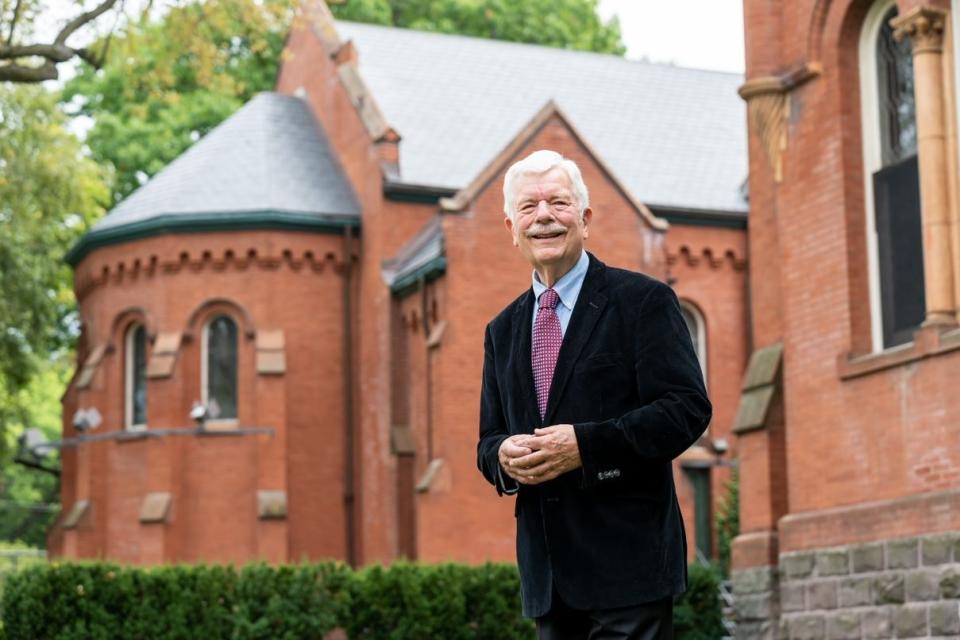As someone who has spent several decades in Church-land, I've heard literally thousands of sermons, homilies, and meditations. Too often, I hear preachers representing Jesus as someone who was uncomfortable with Judaism. They talk as if the Messiah of Israel corrected, rejected, or distanced himself from Judaism, in whole or in part. That's a historical and theological mistake.
Here are some examples of what they say. If the gospels show Jesus disagreeing with other rabbis about Scripture and theology, some preachers portray him as rejecting Jewish principles. (But we don't think that a Christian who argues Scripture and theology with other Christians is rejecting Christianity.) And some picture Jesus as replacing an Old Testament God of wrath and judgment with a merciful and forgiving God. (But the Old Testament often reveals God as merciful and forgiving, while Jesus often describes God as judging and punishing.) Others represent Jesus as defying and implicitly rejecting the restrictive norms of the Judaism of his day—for instance, by his dealing respectfully with women. (We know almost nothing about normative gender roles in first-century Judaism, but we seem to want to believe that Jesus made improvements.)
A terrible nadir
De-Judaizing Jesus has a long history in the Church, but it reached its terrible nadir in the Third Reich, whose Biblical scholars and theologians actually proposed that Jesus was an Aryan non-Jew. And, according to Susannah Heschel, most of these Nazified scholars kept their jobs in 1945 and simply carried on.
In sharp contrast, in the English-speaking world after 1945, conscience-stricken Christian scholars took painful stock of the appalling human cost of their profession's misinformed stereotyping of "the Jews" and its minimizing of Jesus' Jewishness. They began to take a fresh look at Jesus in his Jewish context, and opened conversations with Jewish scholars. Their discoveries revolutionized New Testament studies, even if not all preachers know about them.
Among the Wycliffe professors who have contributed to this reassessment, I have space here to mention only two: Jakób Jocz and Terry Donaldson.
Jakób, Wycliffe’s professor of Christian theology from 1960 to 1976, was a Jewish Christian whose vocation was to interpret Jesus to Jews, and Judaism to Christians. Originally from Lithuania, he was working in Warsaw in 1939, and, but for a fluke, he would have been a victim of the Holocaust, as his father was. I knew him as a brilliant and endearingly eccentric scholar, equally at home with the Hebrew Talmud as with Barth.
Asking ‘Who is Jesus?’
In his 1949 doctoral thesis The Jewish People and Jesus Christ After Auschwitz (published in 1954), Jakób argued that, in asking "Who is Jesus?", we are asking, "Who is a Jew?" He showed that it was crucial that Jesus interpreted his ministry, death, and resurrection in the light of the Old Testament Scriptures, which they fulfilled. For example, we can't authenticate Jesus as the son of God simply because he was raised from the dead; others, like Jairus' daughter and Lazarus, were also raised from the dead, but not "in accordance with the [Hebrew] Scriptures," as the Nicene Creed puts it.
Terry Donaldson, who joined the Wycliffe faculty in 1999 (he retired in 2016 but is still going strong), has focused his research on the complex relations of Jewish and Gentile (i.e., non-Jewish) Christians in the early common centuries. For an introduction to his exceptionally fine Gentile Christian Identity (2020) you can watch one of his public lectures at Wycliffe (https://www.youtube.com/watch?v=jIcsDZZKexk).
Terry recognizes that one of the motives for de-Judaizing Jesus is the desire, not unworthy in itself, to release the gospels from their original ethnic boundaries so that they may have universal application. After all, most Christians today are Gentiles, and we can't expect them to have much background or interest in Judaism. Nevertheless, if we try to see Jesus as a kind of universal messenger to the wider world, rather than as a historic individual with a crucial place in the history of Israel, we will miss him entirely.
Terry has helped me identify one of the main problems with seeing Jesus as "correcting Judaism." Doing so assumes an "essentialized" Judaism, homogeneous and unchanging, as if Jesus had no other choice than either to accept it or reject it. In fact, Judaism was highly diverse, as it is today, and as Christianity is as well; different Jewish groups promoted competing constructions of Jewish identity. Thus in sparring with the Jewish elite and acting in unconventional ways, Jesus wasn't rejecting Jewish identity: he was generating a new form of it. For many decades the Jesus movement (which itself took many forms) remained rooted in this diverse and complex Jewish world, even as Gentiles became more involved in it.
For himself, Terry has been led to the conclusion that we who are Gentiles should read Scripture in the way that the earliest Gentile Christians did: not as if they were Israel, at the centre of the story, but simply as Gentiles, latecomers admitted by grace to the margins of the story.
Humbled, not humiliated
Terry doesn't refer to the Syrophoenician woman in this connection, but reading his book inspired me to picture myself, as a Gentile, receiving the scraps from Israel's dinner table. This picture made me feel blessed—humbled, not humiliated.
Unfortunately, as Terry goes on to say, when Gentile Christians became politically powerful in the Roman Empire, they did lay claim to the centre of the story, as if they were the new Israel. Then they began to identify themselves as Christ's instruments rather than his beneficiaries. Too frequently, as a result, they aligned with empire, persecuted Jews, and embraced colonialism as their divine commission.
Therefore, de-Judaizing Jesus isn't just an abstruse exegetical problem for preachers. It has too often led the Church away from hearing Jesus and towards speaking over him, and, finally, to doing great harm in his name.
That's one reason why preaching Jesus correctly is so critically important to the Church today.





